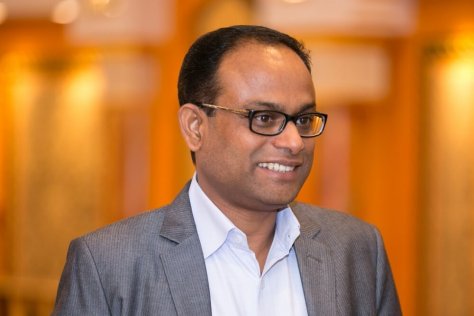Sunil Paul, Co-Founder and Managing Director of Finesse, on why more and more customers are counting on managed services providers to enable them to transition their workloads to digital environments securely during these difficult times.

The on-going pandemic has compelled organisations across the globe to implement remote work models and redefine the business landscape as we know it. At the same time, it has also highlighted that IT managed services have become an essential component more than ever during these uncertain times.
Customers are looking to their managed services providers (MSPs) to be their trusted advisors to help them navigate and address IT complexities during the COVID-19 crisis. It is difficult to imagine how companies would have moved their entire workforce to complete digital environments without the support of MSPs, and IT managed services.

Organisations were forced to accelerate their digital strategies overnight and figure out how to action work-from-home policies. Transitioning to remote work models meant that it was essential to have cloud-based apps and platforms for all departments. A secure VPN Internet access to connect personal devices to corporate networks safely became an immediate need. Employees, too, had to get accustomed to the new normal and ensure they were equipped with video communication tools and other hardware for hassle-free remote working. To achieve this at the scale and speed required, and overcome obstacles, companies had to rely on MSPs for customised turnkey solutions.
MSPs help innovate, customise solutions, and effortlessly solve the challenges presented by the rapid transition to new working models. By trusting their IT services to experts like Finesse, customers could use their time to focus on business profitability. Whether it is to handle a specific project such as cloud migration and automation, or even complete IT requirements, by outsourcing IT support and maintenance to third-party firms, organisations can enhance operational efficiencies and focus on their core business objectives. It allows for cost savings and improved financial planning through a predictable and outcome-based pricing model and reduced susceptibility to financial risks, for both small businesses and large companies.
Besides technical challenges, customers also had to wrestle with the alarming increase in cybercrime over the past few months. Amid COVID-19, global organisations have seen a 148 percent spike in ransomware attacks, according to a report by VMware Carbon Black. Cybercriminals capitalise on the situation and exploit the security gaps that emerge as businesses iron out their remote work technologies. A recent IDC survey reported that 27 percent of organisations in the Middle East have poor breach detection capabilities, while 34 percent lack the security expertise needed to deal with advanced threats. MSPs help customers secure their end-to-end IT infrastructures, digital solutions and data across networks, communication and collaboration software against advanced threats. Now more than ever, cybersecurity solutions are the need of the hour, and MSPs play a critical role in selecting the right security solutions that fit an organisation’s requirements and business environment.
While the crisis will not last forever, experts believe the radical changes it has brought about will remain for a long time. Businesses will continue to depend on IT managed services as they realise its enduring benefits. The 2020 Global Managed Services Report by NTT, based on a survey of 1,250 executives across 29 countries, revealed that 45 percent of firms would outsource more than insourcing in the next 18 months, with 57 percent citing security risks as a key challenge of managing IT in-house.
As organisations recover and resume operations, customers will increasingly consult with their MSPs to chart out business continuity plans and implement technologies that will help them to be more efficient and secure. With managed IT services at their disposal, they can solely focus on aachieving their business goals without disruptions even during a crisis.





